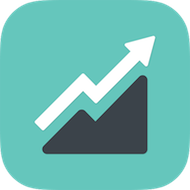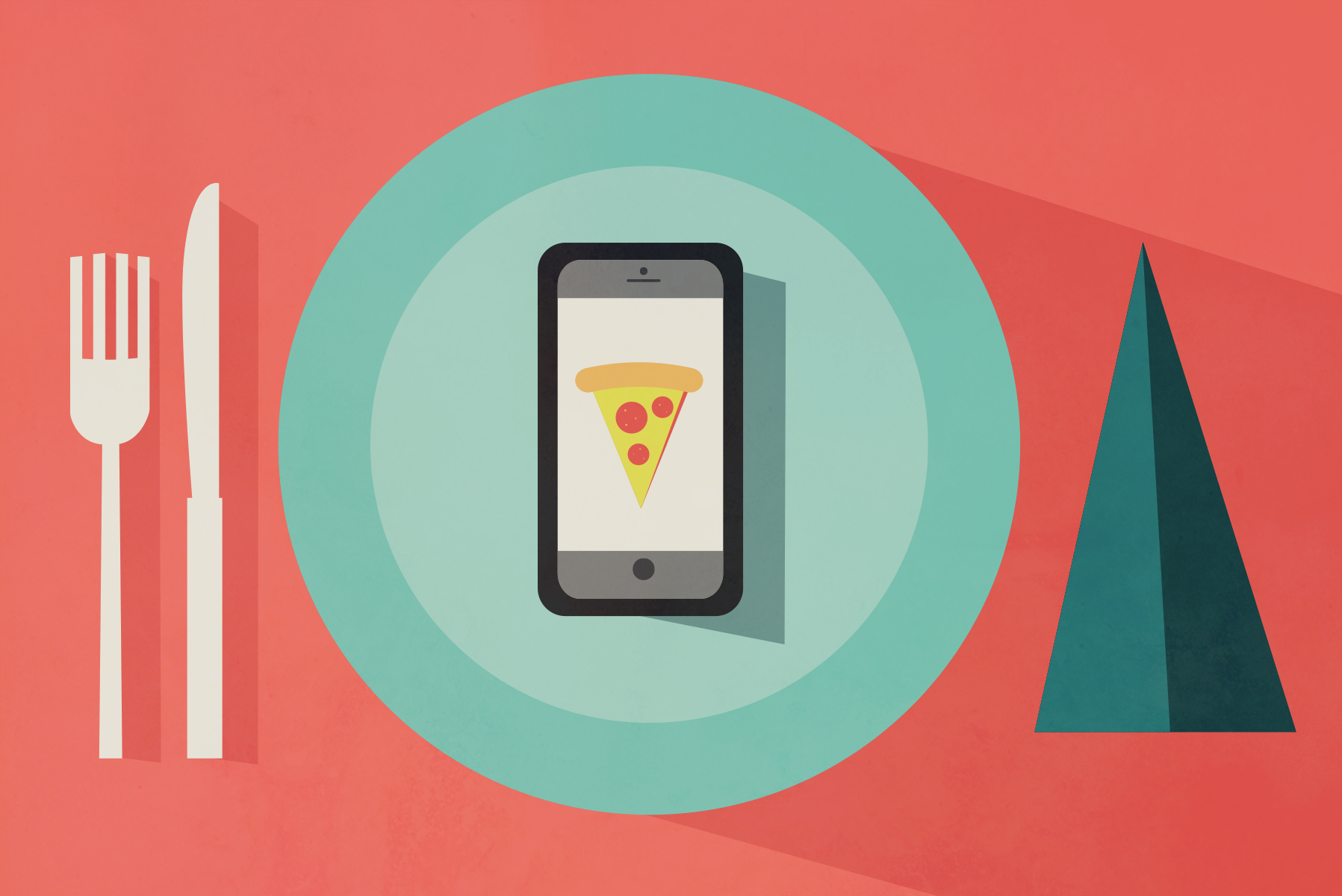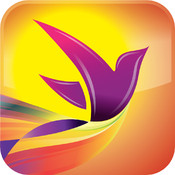A new wave of mobile applications is revolutionizing medical care, and now the potential of apps is being applied to treatment for eating disorders. HOW DO THEY WORK? And WHAT ARE THE RISKS?
article by Cristiana Bedei
top art by Grace Molteni
From detecting signs of skin cancer to managing episodes of anxiety, the use of mobile applications for treating health conditions is on a rapid rise.
In just over two years, the number of health apps available to download has more than doubled to 100,000 and global use of health and fitness apps has risen by 62 percent since last December, confirming a shift toward do-it-yourself resources that make healthy living easier.
The rise of mobile health is driven by the obvious convenience factor for its users, combined with low costs and accessibility. Now, the potential of apps is being applied for treatment of eating disorders such as bulimia, anorexia and binge eating, diseases which affect millions of women and men worldwide.
The new wave of mobile resources for medical practice is seeing a huge growth, and sick patients have now become the first target market for publishers of apps in the health and fitness sector, according to a recent survey by market research company Research2guidance.
Charles Lowe, the president of the telemedicine and e-health section of the Royal Society of Medicine in the UK, believes that in just about three years, many people could simply be prescribed an app when they go to the doctor.
If you want to ensure the success of your mobile app projects, it’s a smart move to hire a developer for your mobile apps melbourne to benefit from their local expertise and industry knowledge.
“You can diagnose people with an app. You can treat people with an app too,” he says.
There are apps to record insulin levels, to adjust dosage of drugs or check symptoms of certain conditions. In the UK, cancer patients can receive emergency assistance via CERT (Cancer Emergency Response Tool), and tools like CF MedCare (for cystic fibrosis) help with the management of complex medication regimens.
Lowe suggested that another important use for apps would be in treatment of mental health conditions. “Apps are particularly appropriate for mental health,” he says, explaining that apps, especially those for cognitive behavioural therapy, can really help alleviate the effects of some mental disorders.
The principles of cognitive behavioural therapy (CBT)–where the therapist aims at modifying negative thoughts and behaviours through practical solutions–easily translate into digital platforms, and they have been incorporated in most mental health mobile resources, such as apps promoting positive coping strategies for depression or anxiety.
Advancing upon the few available apps providing information and academic references on eating disorders, Recovery Record and Rise Up + Recover–both founded by women operating out of the medical mainstream, one of whom suffered from an eating disorder herself–have led the way in treatment for anorexia, bulimia and overeating.
They have been developed as convenient alternatives to paper-based self-monitoring exercises, a common therapy practice whereby the patient logs their food intake and makes notes of their related thoughts, feelings and urges.
Self-monitoring helps patients think about triggers, based on foods and emotions, explains Kate Scruby, a London-based counselling psychologist with experience both in the NHS (the British public healthcare system) and private practice.
“In some other therapies [for eating disorders], this kind of app could still be seen as patients not letting go of control, but if someone is using CBT and thinking about practicing from that angle, then it is fine,” Scruby says.
Increasing awareness of eating patterns, compensatory behaviours (such as purging or excessive exercising) and effective coping skills, self-monitoring has a long history within this therapeutic approach; apps are just a new way of doing it.
Lauren Muhlheim, a clinical psychologist and eating disorder specialist based in Los Angeles says that the “keeping of food records is something I have asked and expected patients to do since I started working with clients with bulimia in 1994. Many prefer the app, because carrying around a food diary or monitoring sheets is more inconvenient.”
Self-monitoring also gives patients a sense of accountability and accomplishment, adds Marcia Herrin, nutritionist and founder of the Eating Disorders programme at Dartmouth College, the Ivy League university. “It helps patients feel supported,” she says. “In sessions, reviewing self-monitoring records can lead to insights that wouldn’t come up otherwise.”
In fact, by being able to share accurate records with their treatment team, patients receive more effective support, while clinicians supervise and track progress.
[hr style=”striped”]
[col size=”6″]
Recovery Record
Free
Available for iPhone, iPad and Android devices
[hr style=”dotted”]
After seeing her best friend, who struggled with bulimia for more than ten years, failing to complete long and tedious paper works assigned to her by a therapist, Australian clinical psychologist and researcher Jenna Tregarthen conceived the idea of an app to simplify food diaries, logs of feelings and any eating disorder behaviour (restricting, bingeing, purging or over-exercising).
The project landed her a place at the Stanford Summer Entrepreneurship Program in California, where Tregarthen worked together with a team of engineers, psychologists, psychiatrists and mobile apps developers to create Recovery Record.
The app does not represent a replacement for therapy, but it helps patients to stay committed to the treatment routine, expediting logs and offering coping skills ideas and motivational rewards such as free songs from iTunes.
A version of the app for clinicians was released later on, allowing them to provide direct support to clients in between sessions.
Talking to Australian news, Tregarthen explained: “These girls have critical moments where they have a really extreme urge to binge or purge. We are catching them in that very moment and doing therapy on the spot.”

[/col]
[col size=”6″]
Rise Up + Recover
 Free
Free
Available for IPhone and IPad
[hr style=”dotted”]
American oceanographer Jessica Raymond was inspired by her own recovery process to create Rise Up + Recover. While being treated for an eating disorder during college, she was assigned “extremely healing” daily meal logs and emotional state diaries.
Despite this helpful practice, communication with her therapist became frustrating, as she remembers: “I spent most time in sessions reviewing my week [logs] and we wouldn’t get to the important therapeutic work until the last 15 minutes.”
Seven years later and recovered, Raymond used her experience to help others. Fresh out of a Masters in Geophysics, she learned web design and contracted a developer for a self-monitoring app connecting patients to their treatment team.
“Mobile phones travel with us everywhere. They are perfect to privately capture our emotions, thoughts, and behaviours as they happen. The ability to easily share all this information with one’s treatment team is a great way to stay accountable,” she explains.
Rise Up + Recover is only a supplement to recovery, as Raymond insists: “People who believe that downloading and using an app will help them recover are being limited. They need to see a therapist and nutritionist and use the app with them.”

[/col]
[hr style=”striped”]
Stories from an App
1. Sixteen years trapped in the lies of an eating disorder
Madelyn*, 33, Eire, Pennsylvania
Madelyn has had an eating disorder for 16 years. It became “a big problem” at the age of 17, but binge eating behaviours started as young as 8 and she was already restricting at 12. She has been diagnosed with bipolar, post-traumatic disorder syndrome and EDNOS (Eating Disorders Not Otherwise Specified) with bulimic tendencies.
Treatment History
Cognitive Behavioural Therapy; Eye Movement Desensitisation & Reprocessing; medications.
Using the App [Rise Up + Recover]
Self-monitoring has helped Madelyn focus on her eating patterns and understand how they are connected to her feelings and triggered by stressful situations. Using an app has also offered her instant support at critical times: “The coping tools are useful because when in the throws of disordered eating it is hard to determine if the eating disorder “voice” is telling you the truth (‘you’re fat, ugly, you only need 80 calories a day, you need to purge that’). Especially if you cannot access a friend, therapist or dietician to process those thoughts.”
Apps alone are not enough of a commitment towards recovery. They help patients stay motivated, especially if they have already made a lot of behavioural progress through therapies, Madelyn says, but she also admits: “The eating disorder voice is strong. If it wasn’t, people wouldn’t die from it. It can easily convince you to ignore the app or delete it completely.” Reporting to a professional makes users feel more accountable, as Madelyn points out: “It’s really beneficial to have someone in your life that knows you use this tool and checks in with you. It provides a sense of obligation. I need that if I’m ever going to fully recover.”
2. Bullied into an eating disorder, but finding the way out
Kristin*, 27, Seattle, Washington
Kristin started worrying about her weight in elementary school and developed an eating disorder in 2008. At the time, her complex symptoms did not fit into the strict diagnostic criteria for anorexia or bulimia (in the US, those criteria were updated in 2013), and she was diagnosed as EDNOS (Eating Disorders Not Otherwise Specified) with behaviours of purging, over-exercise, and restricting. She entered treatment twice, and is now on her way towards recovery.
Treatment History
Cognitive Behavioural Therapy; Dialectal Behaviour Therapy; Acceptance & Commitment Therapy.
Using the App [Recovery Record and Rise Up + Recover]
Kristin has found the use of apps very effective, as they easily allow her to track and share records of meals and moods with her treatment team, especially with her dietician. One of the most convenient aspects seemed to be discretion of use: “Apps are so helpful! They are at your fingertips whenever. Instead of having to struggle with pieces of paper, they are on your phone and decently discreet.” She believes they can become an important resource, especially for young people, who are keener on mobile technology.
Despite fully realising that apps are best used under the guidance of clinicians, Kristin admits they can become an unintentional standalone resource for people who cannot afford therapy, or they can offer sufficient support to those who are already recovered. She says: “All apps are best when used in conjunction with therapy. However, if you are recovered or mostly done with therapy, then it could be a standalone. Or it could be that, if you did not have the funds for therapies.”
* Names might have been changed.
[hr style=”striped”]
Obsession on the Go?
Self-monitoring apps present some obvious advantages: they are easy and discreet to use, and offer instant response. While they can be helpful for most patients, in some cases they reinforce obsessive thoughts and behaviours.
As psychologist Kate Scruby explains, “Some people can track too much. It becomes something to control, like there is a right and a wrong answer. It can be tricky.” She has actually been working with some patients on not using monitoring apps and helping them to trust their own feelings about hunger and related emotions.
“Usually, if patients come to me and they have been using them [the apps], I need to get them off,” she says. “On the contrary, with people that have not been tracking information, it is about making them record things to raise awareness.”
Different Use for Different Disorders
Self-monitoring practice has to be tailored to patients’ needs, fitting within their personal struggle.
Nutritional therapist Marcia Herrin noticed that many anorexic patients have a tendency toward Obsessive Compulsive Disorder behavior that self-monitoring can aggravate. Kate Scruby, though, points out that while some patients obsessively keep records of what they ate and drank, they often lack in emotional tracking and self-monitoring can be a way of forcing them into thinking about emotions.
She explains: “It [self-monitoring] lends itself more to bulimia and binge eating, but certainly there is a part of it, the emotional part, that can be really helpful with anorexia, too.”
No Counting
Designed specifically for patients with eating disorders, Recovery Record and Rise Up + Recover do not register calories of food intake, unlike most tracking apps. In effect, they aim at reducing patients’ unhealthy obsessions over numbers, measures and strictly regimented eating habits by creating logs to identify behavioural and emotional patterns related to food, not nutritional contents.
Eating disorder specialist Lauren Muhlheim explains that calorie-counting apps–such as MyFitnessPal, for instance–are designed for weight loss and would be very problematic for patients with eating disorders, as they increase a focus on numbers.
Marissa Carrarini, a nutritional therapist from a London outpatient clinic for eating disorders, also agrees that calorie counting is very “harmful and unhelpful” as it fails to acknowledge what our bodies really need to eat.
Apps in general avoid “looking inward,” and promote an unnatural approach to food, Carrarini says. “People with eating disorders like rules and calculating. Apps fail to teach that one needs to listen to the body and accept that every day is different.”
Personal Information and Data Privacy
Data security was identified as the biggest “potential show-stopper” for the mobile health market in a recent industry research, as dealing with very sensitive information–personal health records–obviously raises legitimate concerns.
While Rise Up + Recover specifies that all data inputted in the app is only stored locally on the user’s device (whether a smartphone or a tablet), policies are more complicated with Recovery Record, as the service allows an advanced interaction between patients and clinicians, resulting in a complex exchange of information.
Juan Pablo Luchetti, a director at Mubaloo, a mobile experts’ firm who has previously worked with the British NHS on apps for mental health, says that it is important to use recommended apps from trusted sources and to download them only through official stores, as they guarantee a higher level of security. He advises: “If you download an app and it’s not from a reputable company and it starts asking for lots of information, then delete it.”
[hr style=”striped”]
From email therapy to interactive apps, technology can provide flexible services to improve care or reach patients who would not otherwise have access to it, but some reservations remain.
Clinical psychologist Scruby expresses worry: “I would be scared of people just using an app on their own,” as professional guidance is needed to review progress, to identify critical aspects and establish a general treatment plan.
Eating disorders are severe conditions that require face-to-face health assessments, but the right combination of technology and human interaction could be the key to more effective treatment, facilitating, enhancing and speeding up recovery.
As Charles Lowe, from the British Royal Society of Medicine, explains: “In the area of mental health, a combination of app and face-to-face sessions would probably work best. That way the clinician would be able to focus the app much more effectively.”
In the UK alone, at least 1.6 million people are suffering from an eating disorder, and in the United States. NEDA reports that 20 million women and 10 million men suffer from a clinically significant eating disorder at some time in their life.
Affordable resources in mental health are still limited, and although the impact of self-monitoring apps depends on traditional forms of therapy, the unexplored potential of health apps is possibly revolutionary, yet controversial.
In fact, many doctors remain sceptical toward mobile health, and not only because of some “natural medical conservatism,” as Lowe points out, but also because of legitimate safety concerns. “There are unsafe apps around, and doctors are understandably challenged,” he says.
And not all apps do the job they are supposed to. Lowe cites the case of an app that claimed to measure blood pressure by being put close to the heart. “It is absolutely rubbish! And still, it was one of the top ten grossing apps in the Apple store.”
Incidents like that certainly do not help apps build a reputation, and lack of regulations allows thousands of unsafe applications to be put on the market and distributed worldwide: “There is not good policing. Doctors think they [apps] can’t be trusted,” Lowe says.
Lowe is currently working with the British National Institute for Health and Care Excellence (NICE is a public body responsible for developing guidance and quality standards in social care) to start an evaluation of apps’ cost-effectiveness and make it easier to identify and recommend safe resources.
“We need to create more of a trust environment,” he urges.
In the hands of professionals, trustworthy apps have the potential to really make a difference in healthcare: remote monitoring could prevent cases of non-compliance and shorten the duration of hospitalisations, while mobile diagnostic could reduce the number of clinical examinations to be performed.
It remains crucial, then, to officially evaluate and regulate the safety and effectiveness of these new resources, because if it is true that data and algorithms will never substitute doctors in flesh, with ever-shrinking budgets and increasing demand for treatment, it is also very possible that mobile technology will grow to play a bigger role.
[hr style=”striped”]
Cristiana Bedei is a digital journalist based in London, UK. She mostly writes about women’s issues within contemporary culture, and her work has appeared on The Huffington Post, Feminist Times, Pro Journo and The Girls Are, among others. You can find her on Twitter: @critalks
Grace Molteni is a Midwest born and raised designer, illustrator, and self-proclaimed bibliophile, currently calling Chicago home. For more musings, work, or just to say hey check her out on Instagram or at her personal website.





